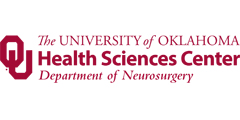Choosing a Healthcare Provider
It is the individual’s responsibility to verify the qualifications, education, and experience of any healthcare professional, hospital, or other providers of services and products, and to assess the suitability of any services or products. To begin your research, you will need to know the physician or healthcare professional’s full name and location. Beware of doctor review or rating websites. Information on these types of websites may or may not be accurate.
In the case of doctors, information is generally available from state medical boards concerning a doctor's number of years in practice, where the doctor went to medical school, whether there are any open complaints against the doctor, or whether the board took disciplinary action against the doctor's license. Similar information may be available from state licensing authorities concerning other healthcare providers.
A doctor is not allowed to practice medicine without a license. However, licensing requirements for physicians vary from state to state. To facilitate the verification of the license status of practitioners, most states provide Medical License Lookup web tools. You can look up licenses at your state's physician licensing board through the Federation of State Medical Boards.
Check to see if your doctor is board-certified and in what area(s) of medicine. A doctor might be board-certified in one area of medicine, but actually practices in a different area of medicine. The article What is ABMS Board Certification? explains what board certification is and why it is important.
Verywell is a helpful website that provides guides on how to research a healthcare provider.
Below are a series of questions to consider when choosing a healthcare provider:
- Does the medical team have substantial acoustic neuroma experience?
- Is the physician Board-eligible or Board-certified in the related specialty?
- Has the physician received specialized training or have significant ongoing practice experience related to acoustic neuroma treatment?
- Does the treating physician use a team approach for treatment where applicable, with access to a team or referrals, with the patient having access to all members of the team? In the case of surgery, a neurotologic and neurosurgical team should be used. In radiosurgery, a team would consist of the radiation oncologist, neurosurgeon or neurotologist, and radiation physicist.
- Are specialists skilled in a variety of rehabilitation issues (facial reanimation, cognitive, vestibular balance, hearing, tinnitus, headache and physical therapy) available before and after treatment as needed?
- Is the physician willing to share the number of cases and outcomes with the patient?
- Is the physician willing to discuss all treatment modalities with the patient, where applicable, and willing to explain why the physician is making the specific treatment recommendation?
- Does the physician allow sufficient time during the initial consultation and subsequently if need be, so that the patient feels all of the patient’s questions have been answered satisfactorily prior to making a decision about treatment?
- Does the patient feel comfortable with the physician’s experience, demeanor, and responsiveness to questions?


































